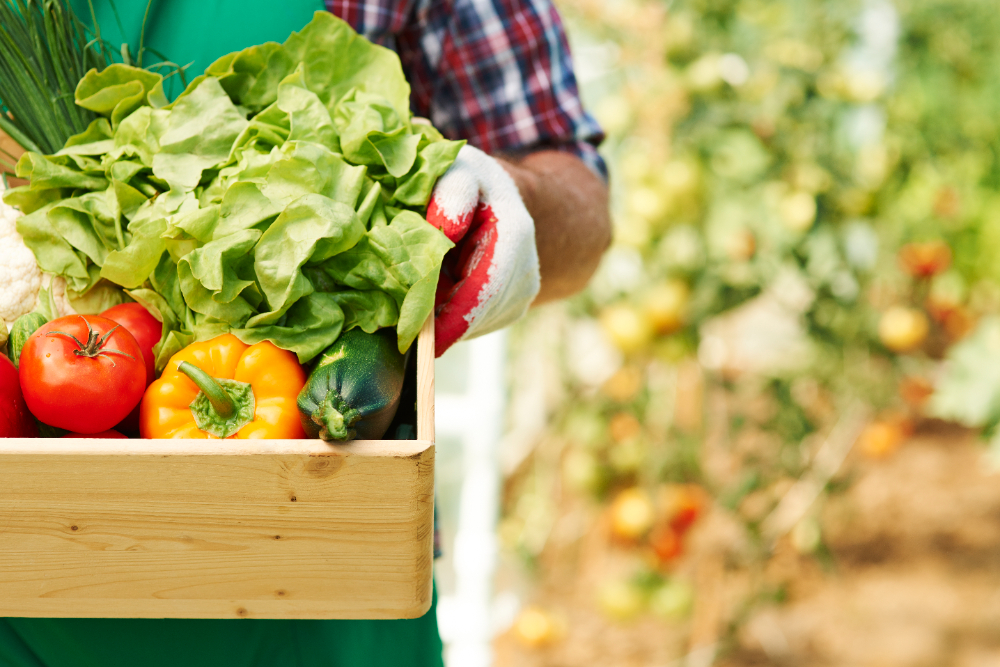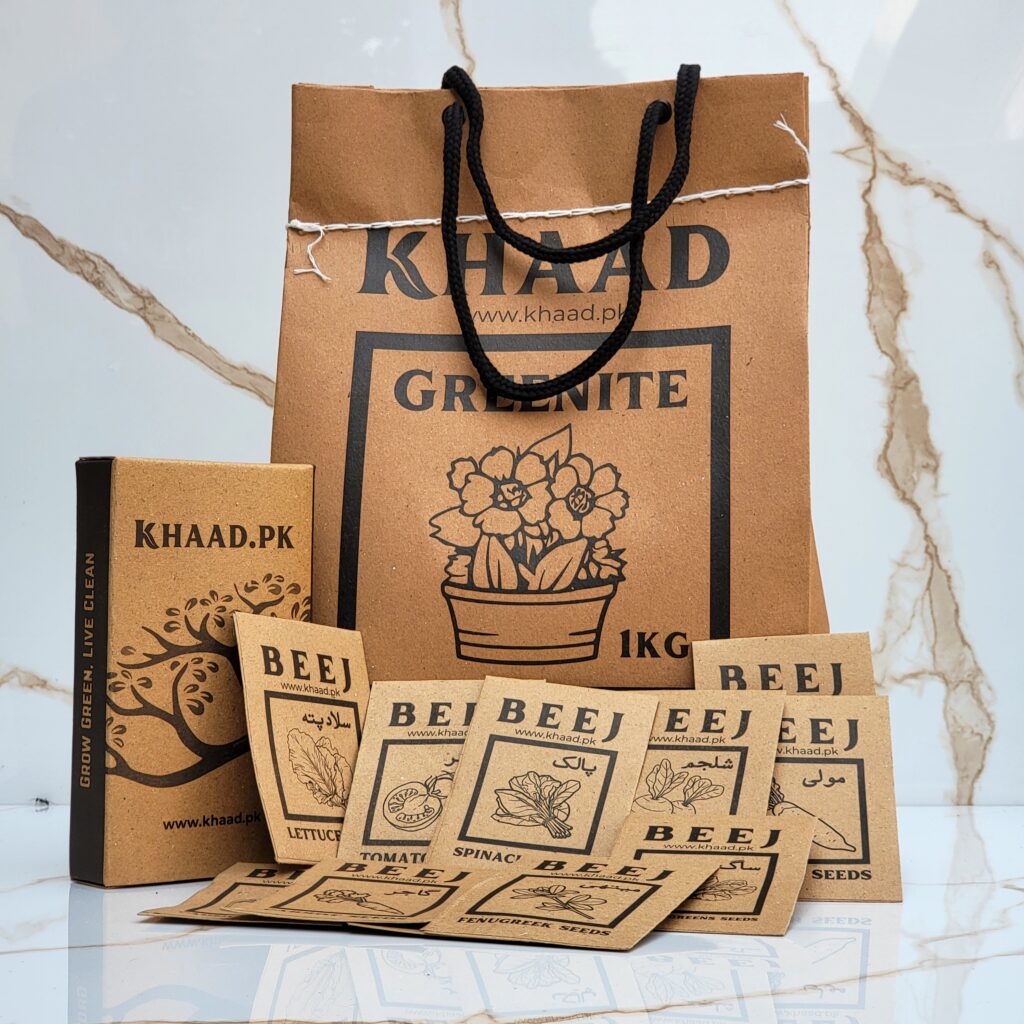Why Grow Organic Vegetables at Home?
Home gardening provides various benefits. Starting from the availability of pesticide-free fresh vegetables, it’s cost-effective and eco-friendly. The achievement from tending to the plants and when those plants are plucked as vegetables gives a high sense of fulfillment. Diverse climatic conditions in Pakistan provide an opportunity for growing both cool-season vegetables like spinach and carrots, and warm-season vegetables like tomatoes and cucumbers.
How to Select the Right Vegetables:
The selection of the right vegetables for your organic garden depends on the season and your region’s climate.
Cool-season vegetables: Spinach, lettuce, radishes, cauliflower, and carrots thrive in winter.
Warm-season vegetables: Tomatoes, cucumbers, okra, and eggplants are perfect for summer.
Perennial options: Herbs like mint, coriander, and basil grow year-round and require minimal care.
Selecting vegetables that are well-suited to your local weather will ensure better yields and less maintenance. Beginners can start with easy-to-grow options like spinach, chilies, or mint.
Setting Up Your Organic Vegetable Garden:

To create a productive organic vegetable garden, it is very important to start with proper planning and preparation. Begin by selecting a spot that receives 6–8 hours of sunlight daily. Vegetables like tomatoes and cucumbers thrive in sunny areas, while leafy greens such as spinach can tolerate partial shade.For soil preparation enrich it with organic matter such as compost or aged manure.
This will improve its fertility and gives the plants crucial nutrients for their growth. If a home gardener is preparing pots, ensure that he has the containers with proper draining holes and then fill those with a mixture of garden soils and organic compost. Lastly, raised beds are awesome options for people who have enough space in their premises.
Organic Gardening Ideas for Novice
- Container Gardening: Use pots or containers to grow vegetables like spinach, lettuce, and chilies.
- Vertical Gardening: Maximize limited space with wall planters or hanging pots for herbs and climbers like cucumbers.
- Composting: Create your own organic fertilizer using kitchen waste like vegetable peels, eggshells, and tea leaves.
These methods are easy to implement and require minimal investment, making them perfect for anyone starting with organic gardening at home in Pakistan.

Planting and Watering Your Vegetables:
Planting varies from one vegetable to another. For example, seed direct sowing is used for root vegetables, such as radishes and carrots. Seedlings are better placed for tomatoes and eggplants. Make sure the spacing between them is enough so that the plants can grow without competing with each other for sunlight and nutrients.
Watering is an essential part of taking care of your garden. Most vegetables need water constantly, but overwatering causes root rot. Therefore, it is advisable to water early in the morning, minimizing evaporation and helping plants absorb moisture.
Natural Fertilizers and Pest Control
To keep the soil healthy, use natural fertilizers such as compost, cow manure, or bone meal. These enrich the soil without introducing harmful chemicals. Homemade solutions like banana peel water or eggshell powder are also excellent for adding nutrients.
For pest control, avoid chemical pesticides. Instead, opt for natural remedies:
Neem oil spray: Effective against common pests like aphids and caterpillars.
Garlic spray: Acts as a natural repellent for insects.
Promote beneficial insects: Ladybugs and spiders will help control pest populations naturally.
Regularly inspect your garden to catch infestations early and address them before they spread.
Harvesting Your Organic Vegetables
The best part of organic gardening is harvesting your homegrown produce. Knowing when to harvest is essential to enjoy the best flavor and nutrition. Leafy greens like spinach and lettuce can be picked as soon as the leaves are large enough to eat. Root vegetables such as carrots and radishes should be pulled out when they reach their mature size, while tomatoes and cucumbers should be picked when fully ripened.
Use a sharp knife or scissors to avoid damaging the plants during harvesting. This ensures that your plants continue to produce throughout the season.


Overcoming Common Challenges
Gardening comes with its challenges, but they are manageable with the right approach.
Extreme weather: Protect plants from excessive heat with shade nets or from frost with covers during winter.
Pests and diseases: Stay vigilant and address issues with natural remedies like neem oil.
Limited space: Use innovative techniques such as vertical gardening or hydroponics to maximize yield in small spaces.
Even beginners can get over the hurdles with proper care and patience to be able to create a thriving organic garden.
Conclusion
Growing organic vegetables at home in Pakistan is more than just a hobby; it’s the way to adopt a healthier and more sustainable lifestyle. With some simple techniques and following the organic gardening ideas for beginners, you can enjoy fresh pesticide-free produce right from your garden. Start small, experiment with different vegetables, and watch your garden flourish over time. Whether you are growing spinach, tomatoes, or herbs, the benefits of home gardening will undoubtedly enrich your life.
